Your Guide to Kruger National Park Safari in South Africa

Kruger National Park is one of South Africa's oldest safari parks. Since the turn of the 20th century, it has been open for visitors to enjoy the beauty of African wildlife. This National Park is located on the northeast edge of South Africa and forms the border region with Mozambique. It's much closer to Mozambique's Maputo than it is to Johannesburg. It is about 5 hours of driving on mostly excellent roads from Johannesburg to Kruger National Park.
Unlike many other African safari parks, Kruger is plugged into a modern infrastructure, which makes it easy to explore. You can drive your OWN car into Kruger National Park. Most roads are paved and there is no need for a 4WD car here, unless you want to drive down the dirt roads (which can be fun).

Right now, the entrance fee is ZAR 304 per adult and there is no extra fee per day. The day pass is valid until closing time every day; if you return thenext day (even if that is in less than 24 hours), you will be charged again. You will have to present an exit permit and if you miss the closing time (6.30PM in summer) you will be heavily fined.
Kruger is stretched out and most visitors recommend a few days to see the whole park. Distances look small, but keep in mind that you will be on a road with a 50 km/h speed limit (31 mph) and you will likely drive slower to see the wildlife. The speed limit is enforced, with rangers equipped with radar pistols looking at you at many turns.

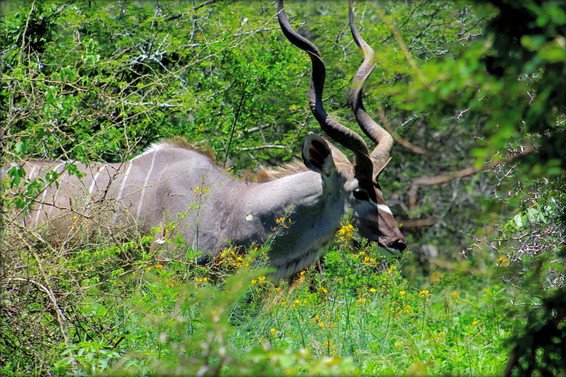

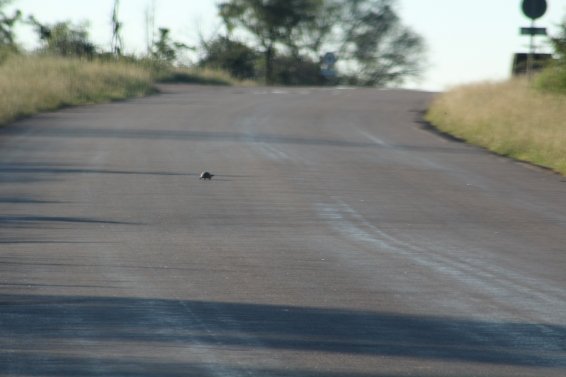



I was amazed by how much wildlife we could see right from the road. Except for a few designated rest areas, you are not allowed to leave the car. I drove by many huge elephants, giraffes and buffaloes and countless impalas.





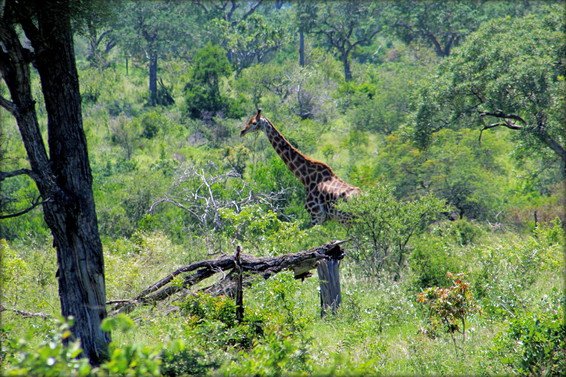
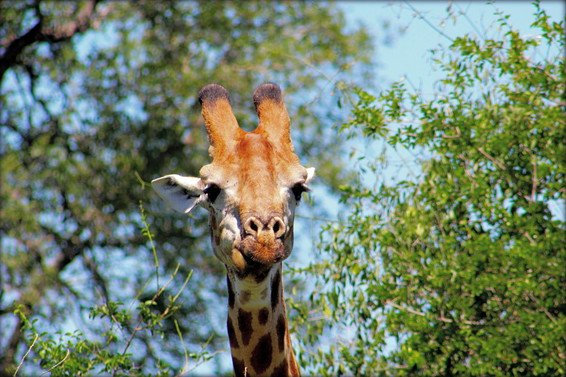

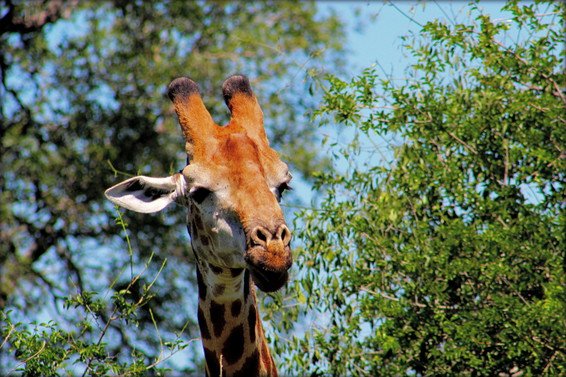

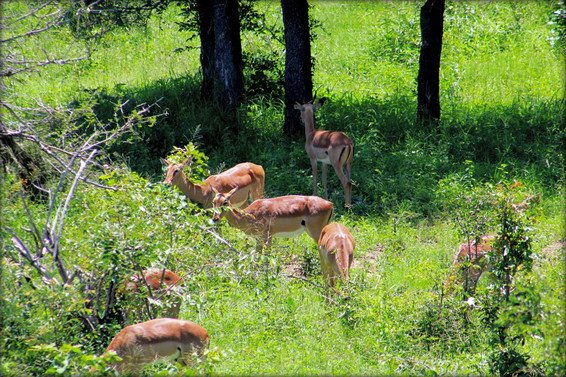

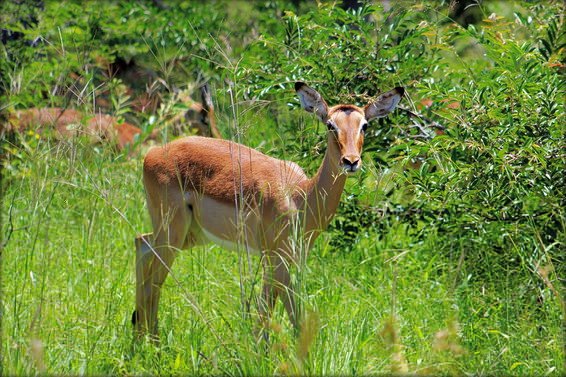
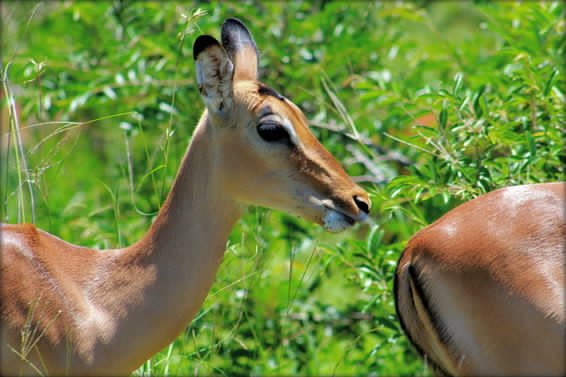
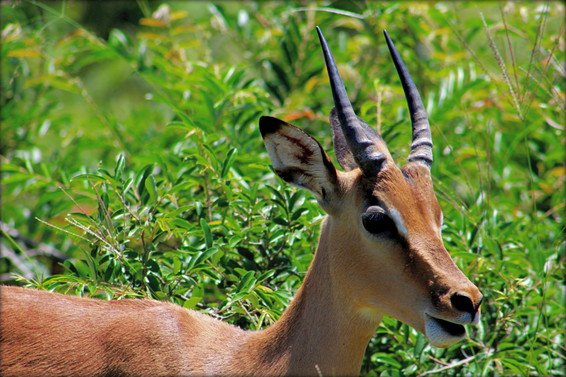

At times, it was scary to see big herds of elephants chilling out on the street, going back and forth between the cars, knowing that they could easily damage the car or kill you.
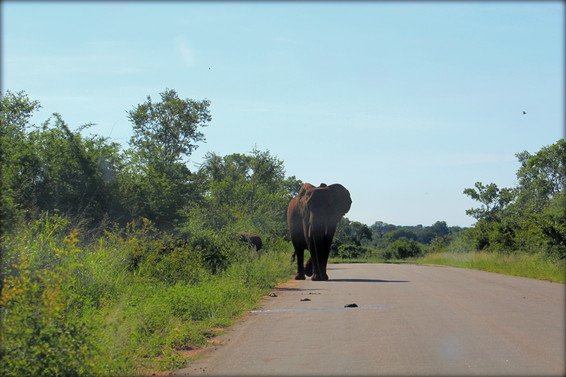



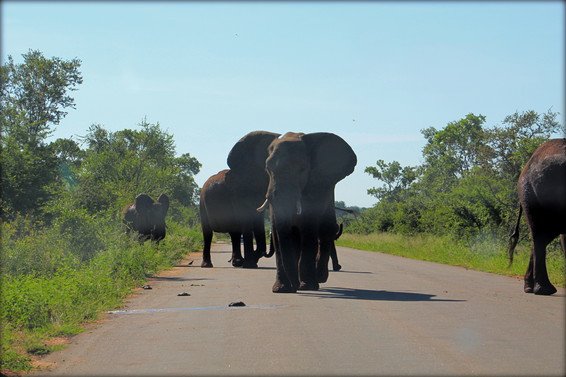

We also saw hyenas, baboons, warthogs, crocodiles, zebras and kudu bullsand had a blast spending the day watching the wildlife.
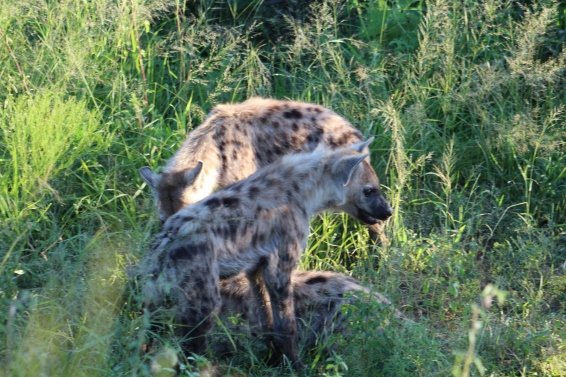
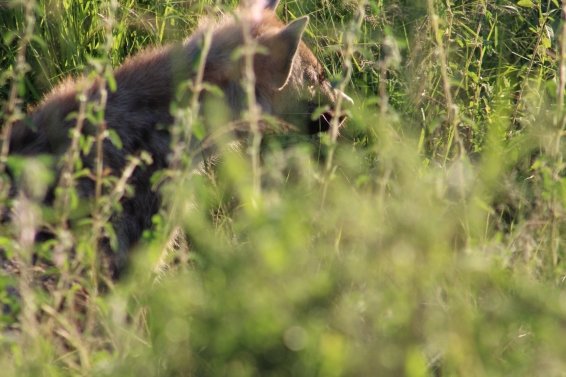
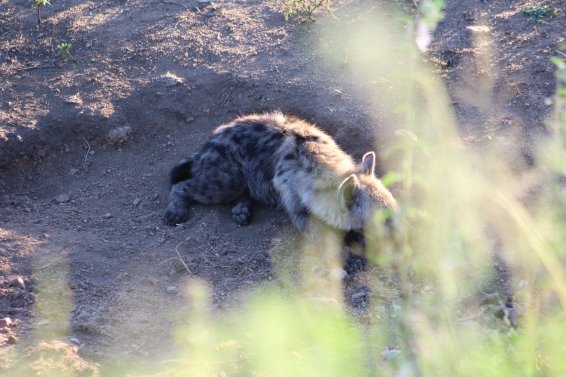

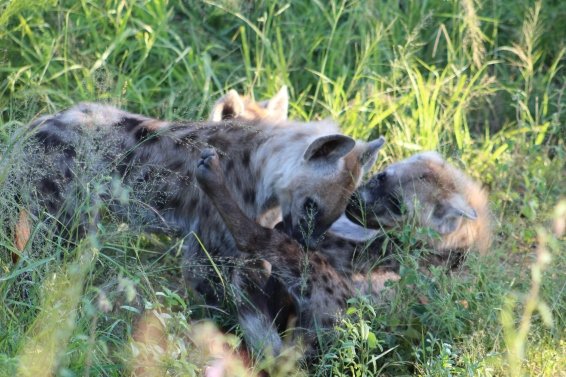


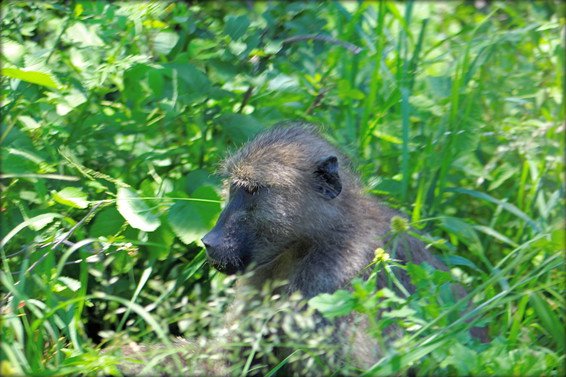

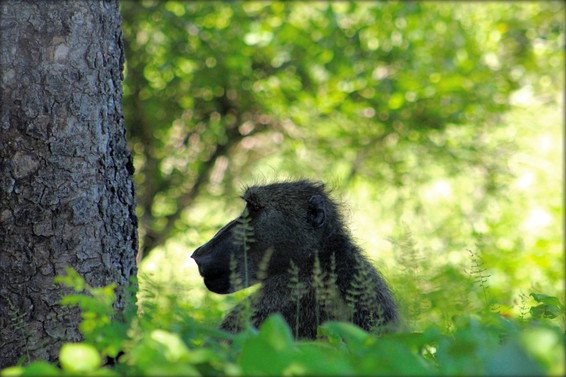
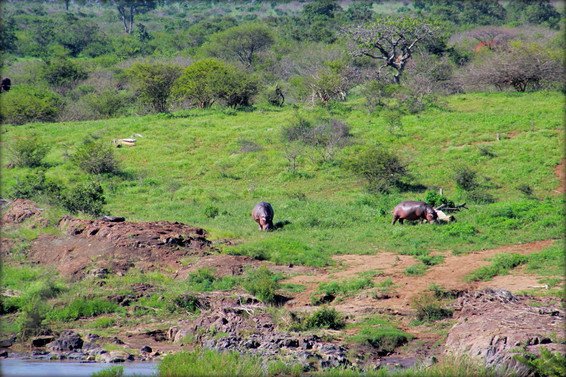
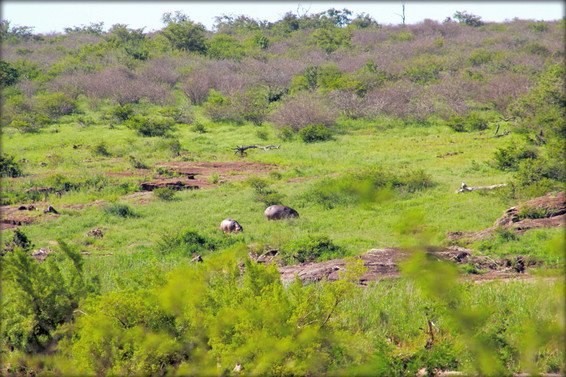


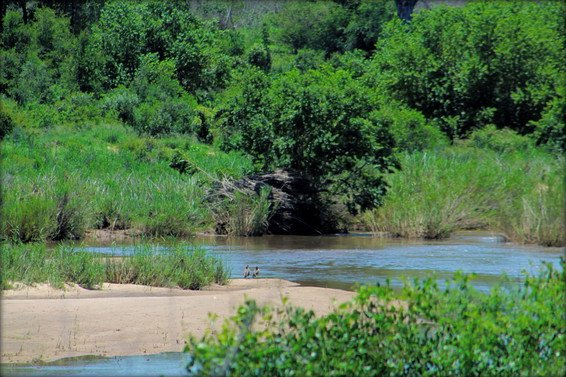

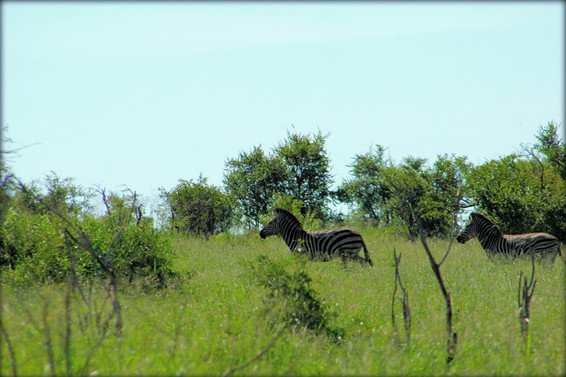

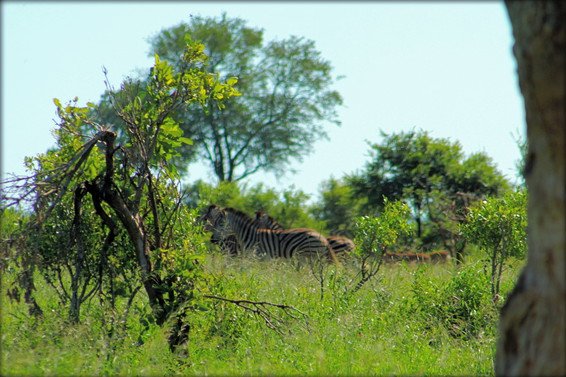

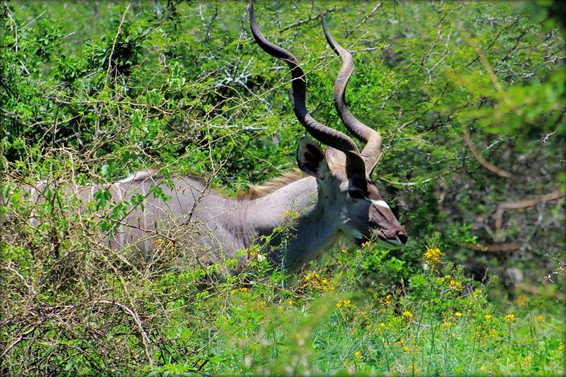

There's many lions and cheetahs in the park as well, but they tend to hide more during the hot summer days. When days are cooler (June/July) they seem to freely roam the streets aplenty.
There's many rest stops and lodges in Kruger National Park. We stopped by the Lower Sabie Rest Camp, whichhad excellent (and cheap) food and provided gas at normal rates. Even the supermarket seemed to sell wares at standard, non-inflated prices.
Lodge stays here can be pricey, so we chose to instead redeem points at the Protea Hotel Kruger Gate. At 7,500 Marriott Rewards points, this proved to be a great deal.

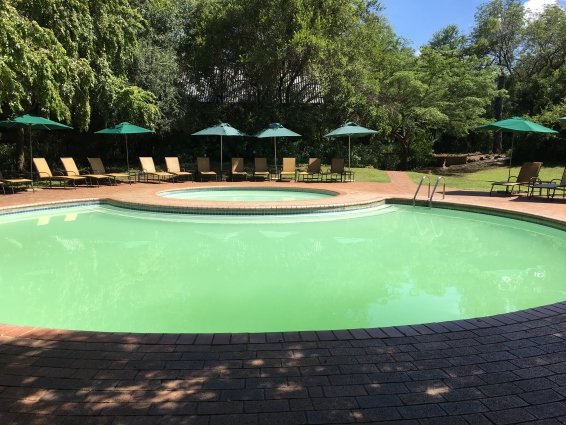
Malaria is a major issue in the park (it is too close to Mozambique to not be affected). There's a great deal of bugs in the air and I used lots of mosquito repellent (DEET seems to work best for me). Malaria prophylaxis is recommended for any visitors.
All in all, I loved Kruger National Park and wished I would have had a bit more time there. I liked how relaxed and easy it was and how few crowds the park attracts.
